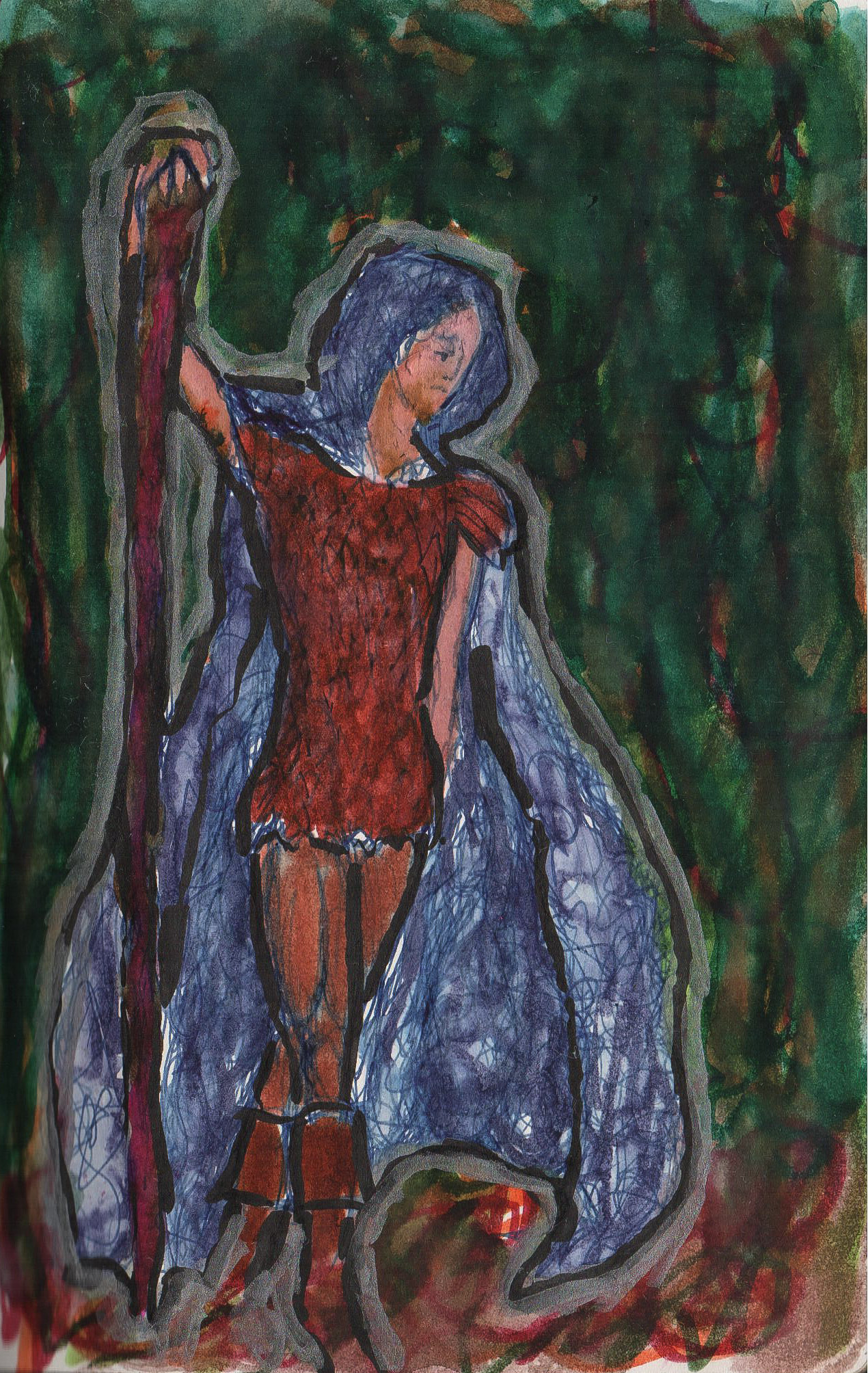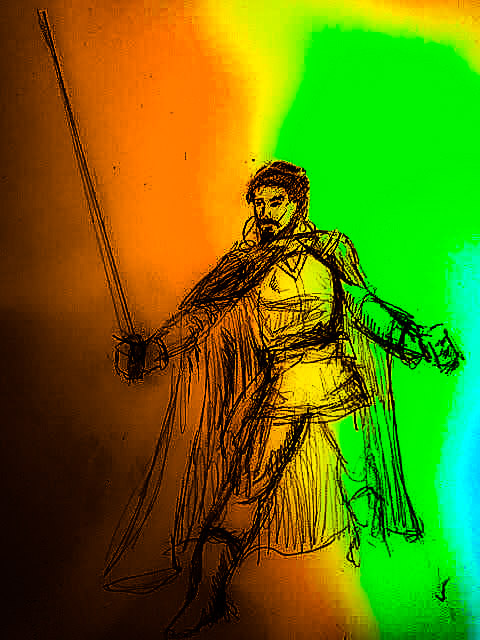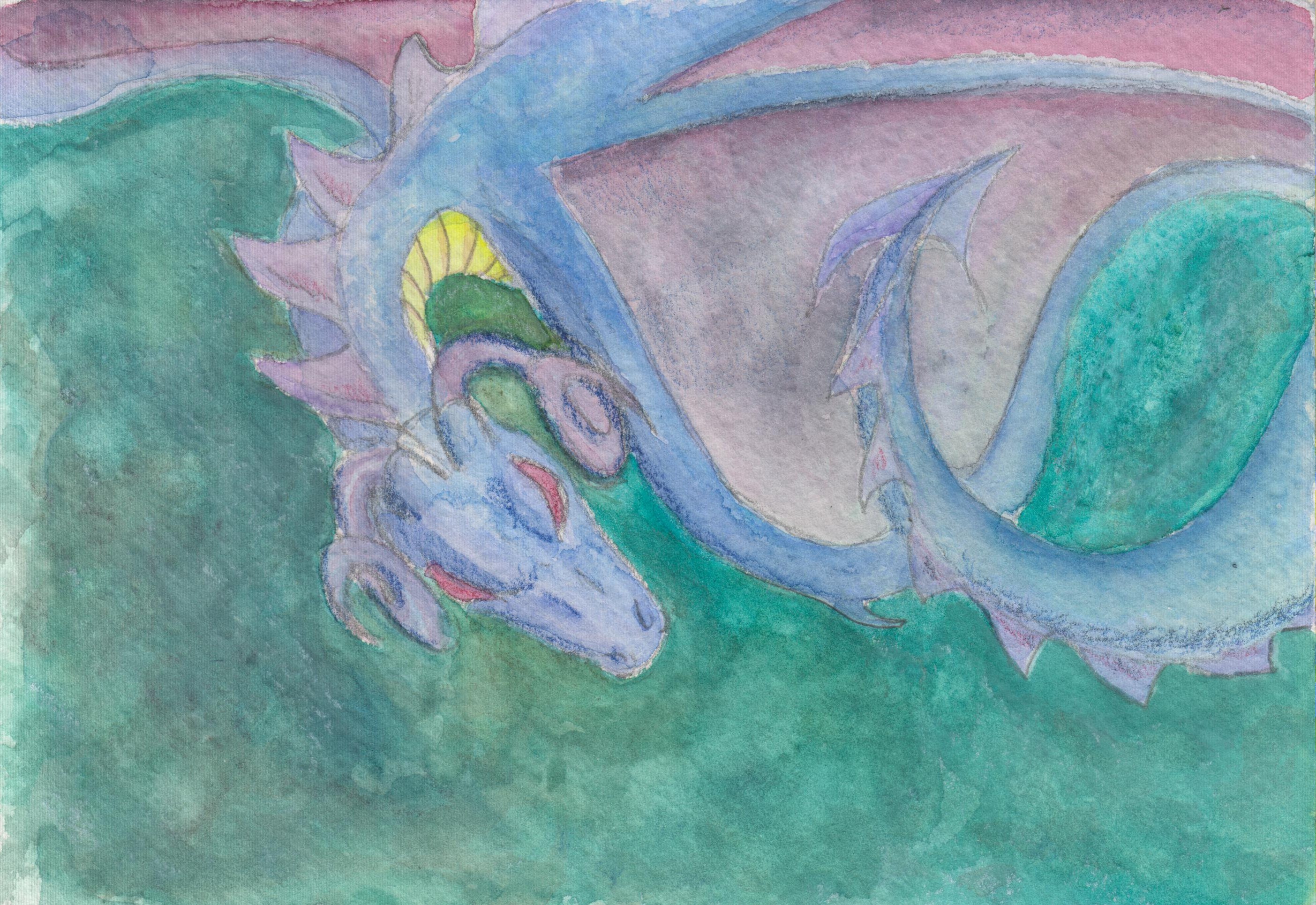The dragon was ancient, that much was clear. His hide had a patina, not unlike a worn coin from a lost civilisation. His manner too seemed from a different time. At first Yendor thought it was because he was a dragon, then because he lived a secluded life. While these things were true, Yendor began to see that there was more to it than that. There was a pace to his movements, to his very thoughts that came with the hoary, wizened ancients that Yendor had encountered on the circuit, storytellers unconcerned with the bustle of youth. Azul exuded it. But he was not slow from being decrepit. That would be a fatal mistake to make. Azul was the fastest, most agile creature Yendor had ever encountered. Azul was simply in no hurry.
Nevertheless, they were up early every morn, to train, to work, to plan, and well into each night. Azul loved the night. The dragon was himself the color of the sky just after dark, while there was a glow to the deep blue night, celebrating the coming darkness. Yet the creature worked Yendor throughout the day, tirelessly, beginning with bathing in the stream, exercising a slow calisthenics, involving breathing, balance and energy flow. Yendor drew on the energy from all around him and let it flow through him. There was energy from the earth, from the air, from the living creatures, from the streams that flowed, from the planets and stars in the sky, indeed, the sun itself. And there was energy from the Source. The energy that created and sustained and would ultimately consume the universe itself. Yendor didn’t take this energy; he allowed it to flow through him. It was there, free for any with the means to see it and accept it.
Next came breakfast. The dragon drank from the spring, whatever fish or other water creatures that came along were part of that morning tea, as Azul referred to it. Azul would then consume the fallen leaves and dead grass, whatever the forest had to offer. He seldom hunted. It would empty the land of life to sate such a creature for long. Yendor wasn’t sure exactly how big Azul was, he was mercurial in his movements and appearence. But Yendor had initially mistaken Azul for a hillside. The dragon could blot out the night sky. The creature’s eye, when it drew close to Yendor to take his measure, was as tall as Yendor at its roundest height, and half again as long horizontally. His head, so like a deer in shape, was proportionately larger. The smokey snout of the creature was like a table in the grandest halls. Yendor shook his head. He was a trained poet, but felt wholly inadequate trying to describe the dragon.
The morning continued with martial exercises. Swordplay, hand to hand combat. How a dragon was so versed in such instruction was a mystery to Yendor. For lunch Yendor would supplement his breakfast of fish, eggs and coffee, with dried venison and wild blackberries. He still had some actual tea he’d gotten from the city he visited. While the dragon snoozed, Yendor would puzzle over the Winter Solstice songs he’d found there, sometimes just wondering who the scribe had been. Was he the author of the songs? Were they popular? Had they been written long before Incarnate had come to power, or perhaps in the early years of his rise? This last idea had occurred to Yendor as he wondered about the Cypher of the lyrics. Sometimes poetics called for a veil of meaning. Blunt, emotional appeals to lost love were a sign of amateurish attempts at poetry, but the emotions themselves remained a source of inspiration, so metaphor and anecdotes were often applied to broaden appeal and bring originality to a subject that had been visited endlessly since the beginning of time.
These lyric’s meaning were masked for a different reason. Perhaps in Incarnate’s early years, these kind of songs were not yet outlawed, but were still considered subversive. Peeling back the layers, Yendor found an appeal to a Deity motivated by love. In fact it was getting hard to avoid the conclusion that the Deity WAS love. But not like one would appeal to for a mate… more like the emotion a mother has for a baby, or a child for a pet. Coupled with the training Yendor received, it was natural to think of the Deity as the energy that fueled the Cosmos.
The afternoons were for instruction of sciences; math, physics, logic, all things Yendor thought he knew, but couldn’t see why or how they were related to his martial training. Was Azul just being thourough? It didn’t seem likely to Yendor. Although, the dragon was thourough, he was also motivated by utility. There was a purpose to these things. They were, as Azul liked to say about absolutely everything, all connected.
In the evening they would hunt. Azul from the sky, and Yendor from the ground. Working in concert. Yendor came to see that this too was training. After all, the dragon did not kill or partake of the meal. He would eat an entire pack of wolves if he were hunting for himself, not the rabbit or other small creatures Yendor killed for his supper. Indeed, if there were signs of an imbalance in the ecosystem to that effect, that’s what Azul would do. It was rare for the dragon to allow himself to interfere in the balance of the forest though. Usually it sorts itself out, Azul would say.







